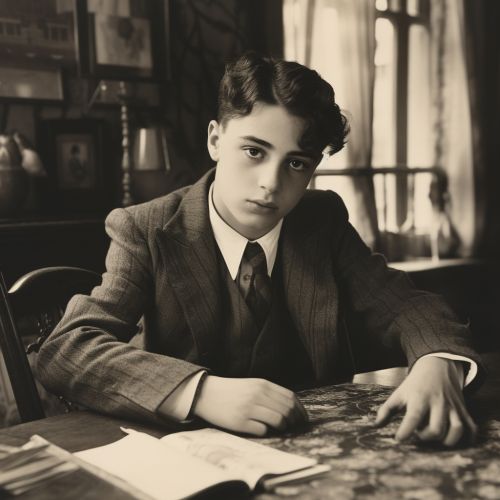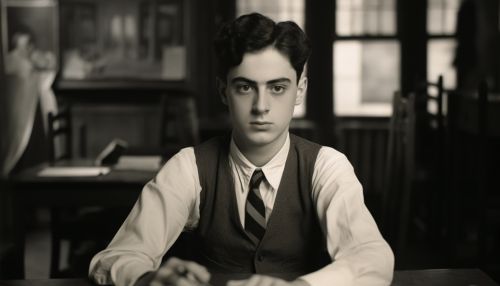Lev Landau
Early Life and Education
Lev Davidovich Landau was born on 22 January 1908 in Baku, Azerbaijan, then part of the Russian Empire. His father, David Lvovich Landau, was an engineer and his mother, Lyubov Veniaminovna Landau, was a physician. Landau's parents provided him with a rich cultural and intellectual environment, which fostered his early interest in the natural sciences.
Landau showed exceptional mathematical abilities from a young age. He completed his secondary education at the Baku Economic Technical School at the age of 13, and by 14, he had enrolled at the Baku State University. Here, he studied in the Department of Physics and Mathematics, where he began his lifelong journey into the world of theoretical physics.
In 1924, at the age of 16, Landau moved to Leningrad (now St. Petersburg) to continue his studies at the Leningrad State University. He graduated in 1927 and stayed on for graduate work under the guidance of theoretical physicist Yakov Frenkel. During this time, Landau made significant contributions to the quantum theory of the solid state, including the theory of Fermi liquids.


Career and Research
In 1930, Landau was awarded a Rockefeller Fellowship and spent two years in Europe, where he worked with leading physicists including Niels Bohr in Copenhagen and Paul Dirac in Cambridge. His work during this period resulted in the development of the Landau Pole, a concept in quantum electrodynamics, and the Landau damping mechanism in plasma physics.
Upon his return to the Soviet Union in 1932, Landau was appointed the head of the Theoretical Division at the Ukrainian Physico-Technical Institute in Kharkov. Here, he developed the theory of quantum mechanical tunnelling and made significant contributions to the theory of superconductivity.
In 1937, Landau was appointed the head of the Theoretical Department at the Institute for Physical Problems in Moscow, a position he held until his retirement. During his tenure, he made significant contributions to various fields of theoretical physics, including the theory of second-order phase transitions, the theory of quantum electrodynamics, and the theory of neutron stars.
Landau's Theoretical Minimum
Landau was not only a brilliant physicist but also an exceptional teacher. He developed a comprehensive examination system known as the "Landau's Theoretical Minimum", which tested the knowledge of students in various fields of physics. This system was renowned for its rigor and depth, and it produced many outstanding physicists.
Personal Life and Legacy
Landau married Kora T. Drobanzeva in 1937, and they had a son, Igor, in 1946. Despite his demanding career, Landau was known to be a devoted husband and father.
In 1962, Landau was severely injured in a car accident and spent two months in a coma. Although he eventually recovered, his health was permanently affected, and he was unable to return to active research.
Landau passed away on 1 April 1968. His legacy continues to influence the field of theoretical physics. The Landau Institute for Theoretical Physics in Chernogolovka, Russia, is named in his honor.
Awards and Honors
Throughout his career, Landau received numerous awards and honors for his contributions to theoretical physics. These include the Stalin Prize (1946 and 1953), the Nobel Prize in Physics (1962), and the Max Planck Medal (1960). He was also elected a Foreign Member of the Royal Society (1959).
